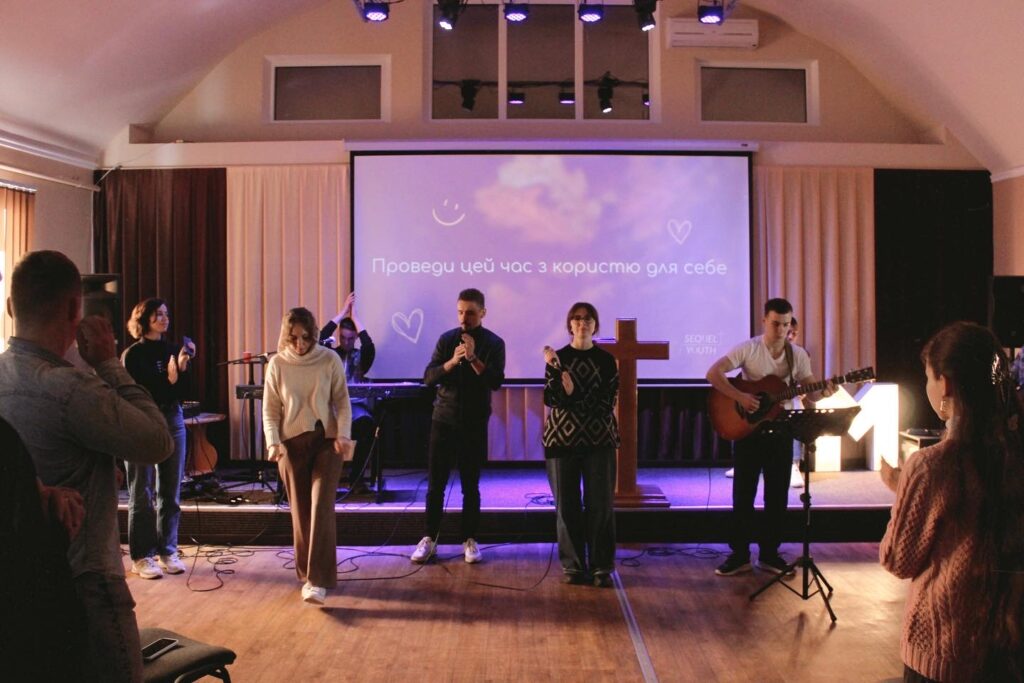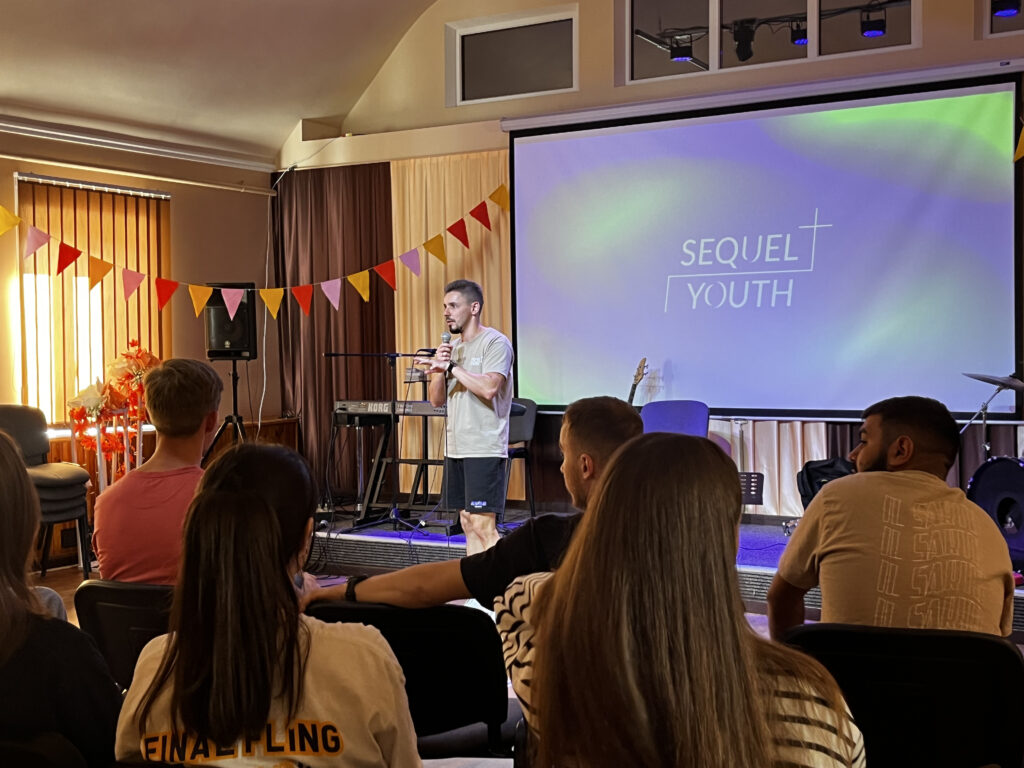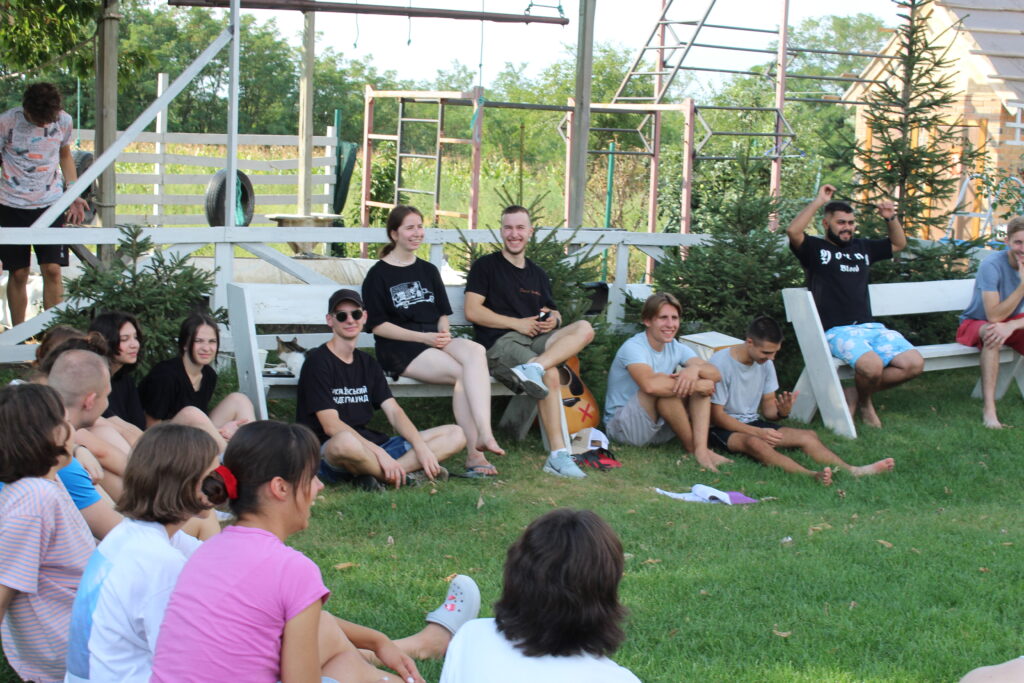
Serhii Shmatko is a graduate of the Applied Theology Program and a Youth Pastor of the Living Hope Church in Kropyvnytskyi. In this interview, we talk about the impact of theological education, leadership, responsibility, and serving the new generation.
Could you tell us how you started your ministry?
I’m currently in youth ministry – we serve young people and teens. But, to be honest, youth ministry was something I always shied away from. But then I started studying at UETS, and active involvement in practical ministry was one of the requirements for all students. So, I began to look for where in the church I could serve. For some time, different people have been pushing me into youth ministry. I took it as a sign that God was calling me to do this.
Later, when I started and could finally see some results, I understood that there was a lot of work to do with young people. I could see that I could serve them in many different ways, and I could apply the knowledge I gained in the seminary in my ministry. After all, simply learning something and not using it, in my opinion, is a waste of time. It doesn’t make sense.

How did studying at UETS influence your ministry?
Well, the most important thing is that it pushed me to be in ministry in general. Before that, I did not serve at all. Today, I am the leader of the youth ministry, and from time to time, I also preach during central ministry services. Also, before the full-scale invasion, I sometimes taught Bible school classes or during preparations for water baptism. It all started after I went to UETS.
I was greatly influenced by the lectures on leadership given by Dr. Fedir Raichynets [head of the “Transformative Leadership Program – editor’s note], and also by lectures taught by Mr. Denys Kondyuk [head of the Department of Worship Studies – editor’s note].
There was also one book that we read during our studies – it was called “In the Name of Jesus” by Henry Nouwen. It’s idea that a Christian leader is the one who serves greatly influenced me. At first, I tried to act a bit dictatorial in my ministry so that people would listen to me. But then I tried to serve them first. That is, I now understand that I am not just their boss but the one who should serve others first of all. I now understand that in order to serve I need to find a unique approach to everyone, as people are not all the same; they all have different characters and backgrounds. It is necessary to build relationships with everyone.

Could you tell a story of someone whose life was influenced by your ministry?
One brother in Christ from my church, who already is a home group leader, is now planning to enter the seminary. He told me: “I like the way you preach so much. I like how you interpret and approach the Bible texts from different angles: historical, cultural, etc.” Well, at least that’s how I try to preach, but I don’t say it out of pride but simply to illustrate how my way of preaching has prompted him to dig a little deeper. I usually try to support such people – gradually begin to give them various helpful literature. The first book I always give people is “How to Read the Bible and Not Distort Its Meaning” by UETS lecturer Serhii Flugrant. This is simply a fundamental book for every Christian. So, I gave him this book, and he liked it so much that he decided to enter full-time studies at UETS.
One more story. In the past, I used to be a rock musician. And I had an acquaintance who attended our concerts. I haven’t talked to him for a long time, and then I saw on social media that he posted a photo from some bible study group. I thought it was great as he must have repented and attended church. Sometime later, our mutual friend told me: “Remember Andrii? He saw how you posted photos from your studies. He was very affected by this, and he himself went to church, repented, and now plans to start studying.” I was very surprised. You see, I didn’t say anything to that man at all, but God was doing His work with him, and somehow my story affected him. For me, this is another confirmation that, despite all the doubts, it was worth coming to study.

Could you share with us what questions you ask yourself to do your ministry more effectively?
One of the things I constantly ask God in my prayers is: “God, what do You want from all this?” This is the most important thing. Honestly, I don’t understand a lot, and I don’t know a lot. But with the question of where we have to go next, I put my trust in God. My goal is simple: our teens and young people must be baptized, they must stay in the church, they must study the Bible on their own, and they must build personal relationships with God. They also must become part of a home bible study group so that they continue to grow there, and then they also have to choose a ministry for themselves. These are my guidelines.
And lastly, what kind of impact do you want to see through your ministry?
First and foremost, this is about spiritual growth. We want to see our teens start showing the fruit of the Spirit. We want to see how they change, how they start being less selfish and more interested in helping others, and how they are becoming more collaborative. And, of course, we see it as a great success when they take the initiative towards participating in ministry.

